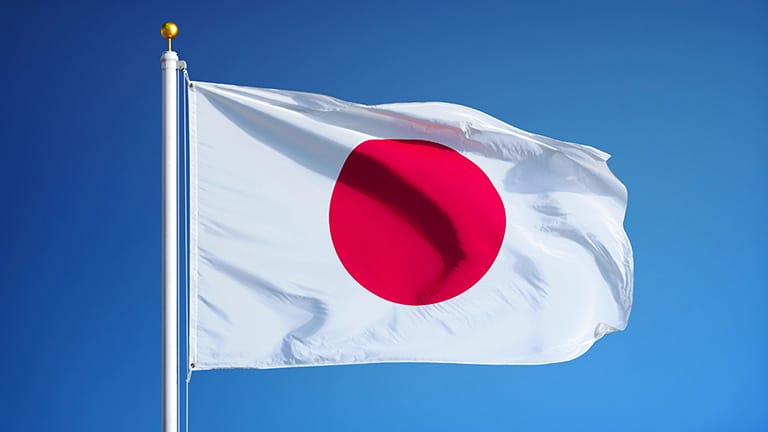International Service of Process in Japan
International service of process is complex. Rules vary depending on the country of service, and it’s important to choose a process server who is familiar with both the procedure and the region.
DGR has experience effectuating service in over 100 countries, including Japan. Depending on what the service requires, we can:
- Provide supporting information and documentation
- Assist in getting difficult court signatures and affidavits
- Obtain additional extensions of time
- Provide the status of service
Our worldwide network and extensive experience ensures the fastest, most efficient service possible for our clients.
In Japan, service can be completed via the methods prescribed by the Hague Service Convention. These methods include formal service via a court of justice, and informal service via a competent court clerk. While service via a marshal is permitted, informal service via the mail is not.
Process Service in Japan Under the Hague Convention
International service of process in Japan can be completed through the Hague Convention. Japan ratified the Convention of 15 November 1965 on the Service Abroad of Judicial and Extrajudicial Documents in Civil or Commercial Matters, more commonly known as the Hague Service Convention, on May 28, 1970. The provisions of the Convention were put into effect on July 27 of the same year.
While Japan is a ratifying member of the Hague Convention, it does object to a few key articles. In 2018, Japan formally issued their opposition to Article 10(a) of the Convention, which allows for the completion of process service through the mail.
This means that anyone attempting to effectuate service in Japan cannot attempt to complete service directly through the postal system.
Permitted Methods of Service
According to Article 5 of the Hague Service Convention, process service can be completed in Japan through the following methods:
Formal service (Art. 5(1)(a))
Documents are sent to the central authority, who in turn effectuates service via methods prescribed by the Japanese government for process service.
Informal service (Art. 5(2))
Service can be also be effectuated with the assistance of a competent court clerk. The clerk informs the intended recipient regarding the presence of the documents, allowing the recipient to present themselves to the court in order to be served.
Recipients can also request to have documents forwarded to them via special post.
If the intended recipient refuses to appear before the court or otherwise refuses the documents, the documents are returned to the sender after three weeks.
As in process service via the court of justice, the post officer is responsible for creating and reporting an authorized proof of service document.
Service via Marshal
Japan allows for the completion of service through a court Marshal when requested by the sender. The Marshal will determine that the recipient is actually the addressee before serving the individual directly. Private process servers or investigators are not permitted to effectuate service.
Translation of Documents
Japan requires the full translation of all documents into Japanese. This includes summons, complaints, and all exhibits related to the case. All the original documents and the Japanese translations must be given to the recipient simultaneously.
Omitting any translated documents will cause Japan’s Central Authority to reject the service request.
Special Considerations for Process Service in Japan: Impact of the 2018 Opposition to Service via Mail
One reason it’s important to work with an experienced process server? Regulations change over time.
The 2018 objection to Article 10(a) is a transition away from Japan’s original and far more nuanced approach to process service by mail. At the HCC special commission in 1989, Japan issued the following statement:
Japan “has not declared that it objects to the sending of judicial documents, by postal channels, directly to persons abroad. In this connection, Japan has made it clear that no objection to the use of postal channels for sending judicial documents to persons in Japan does not necessarily imply that the sending by such a method is considered valid service in Japan; it merely indicates that Japan does not consider it as infringement of its sovereign power.”
Simply put, Japan didn’t necessarily approve of using mail as a method of service, but it didn’t consider it an infringement on Japanese judicial authority.
Formally opposing process service by mail does make completing service in Japan a lengthier process since the sender must now use only the methods outlined in the Hague Service Convention.
However, it also prevents a potentially drawn-out negotiation between the sender and the Japanese judicial system. Now that service via mail isn’t permitted at all, the courts no longer need to establish if process service by mail is valid on a case by case basis.
Serving Legal Documents in Japan
When attempting to effectuate process service in Japan, it’s essential to follow the exact protocols outlined by the Japanese Central Authority—and in order to do that, it’s important to work with a process server with experience serving in Japan.
Our experience successfully completing service abroad in Japan means we’re equipped to effectuate service as efficiently as possible. Just as critically, it means that when there are challenges in the process, we know how to adjust our strategy to keep the service on track.
Whether that’s using a formal method via the court of justice or an informal method like a court clerk or marshal, identifying the correct method of service is best left to a process server with experience effectuating service in Japan.
Questions? Just contact us.
Contact Us
"*" indicates required fields
For a time-sensitive service request, please call us at 973-403-1700.
Our Legal Services
Process Service
Fast, reliable service complete with an online portal to track status updates.
Due Diligence Searches
Having problems locating an individual or entity for service? We can help.
Subpoena & UIDDA
International Process Service
From knowing which method of service is best to handling translations, we’ve served around the globe.
Messenger Service
Same-day delivery, where your package is our driver’s only priority and you get a recipient’s signature.
